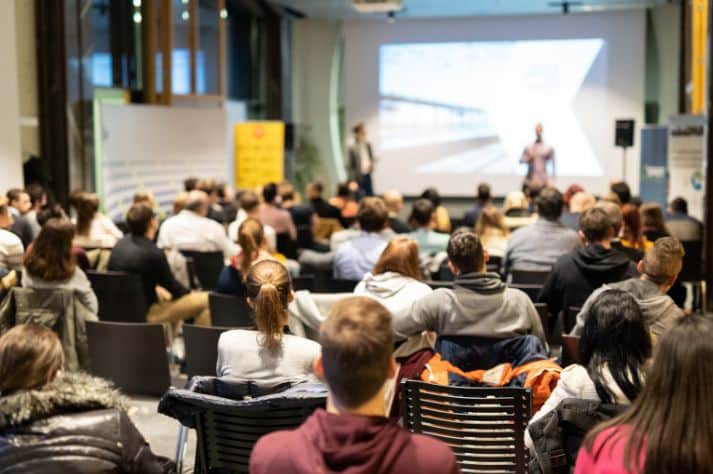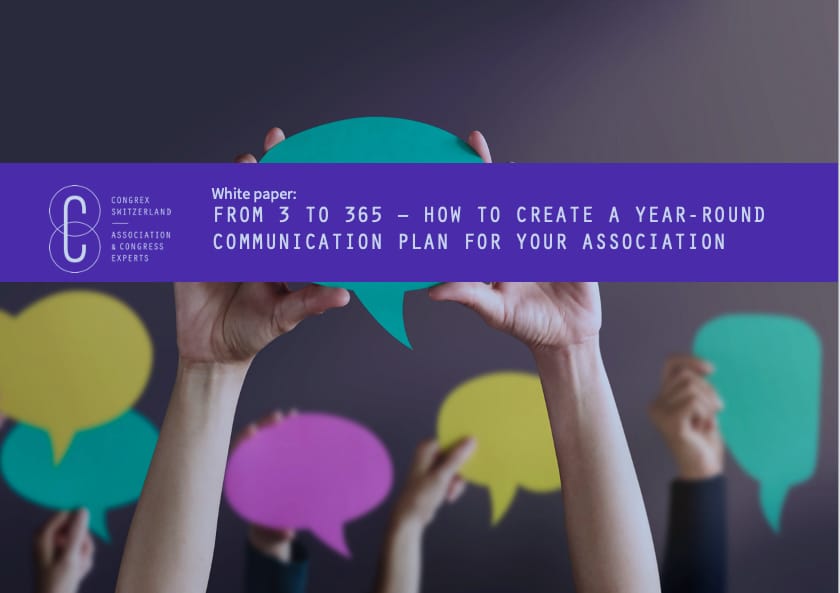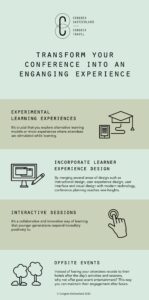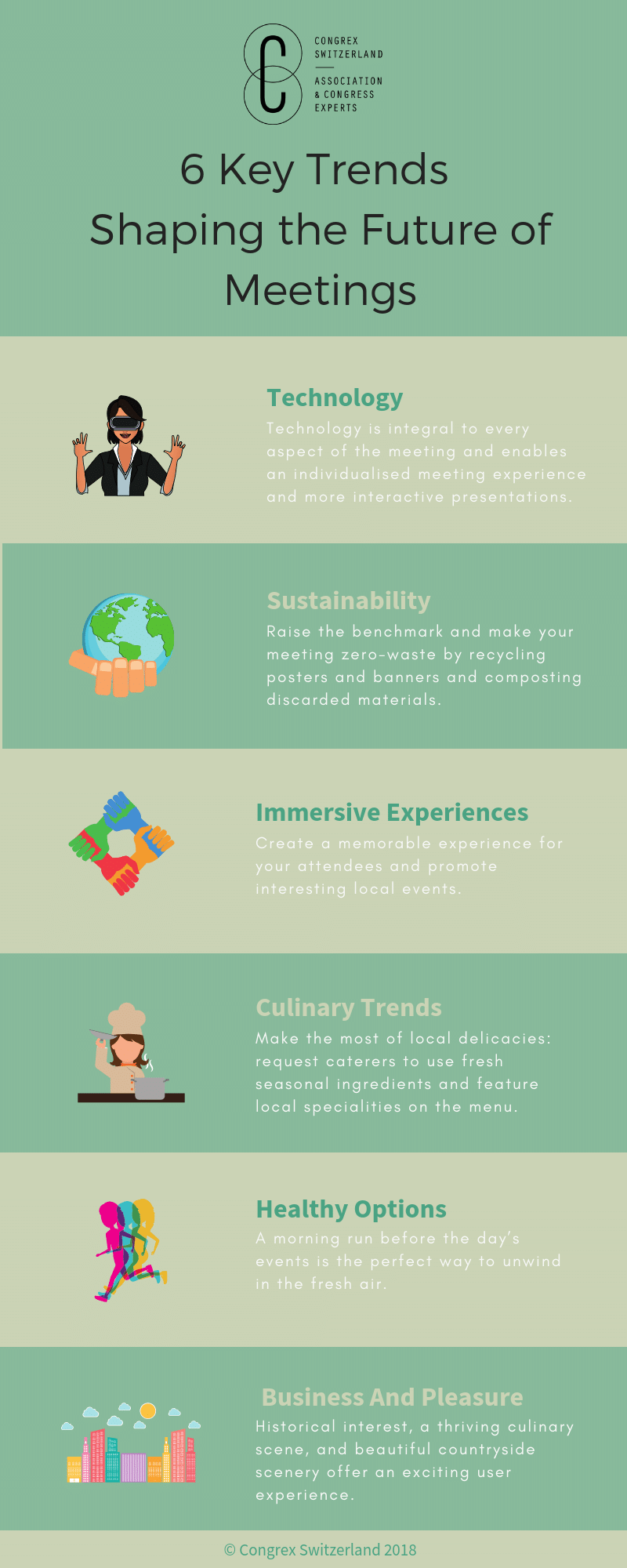Attendee engagement is one of the most critical factors for event success, as it directly impacts an event’s reputation and profitability. As the industry gets more invested in digital transformation, conference organisers must cope with challenges that could interfere with engagement.
These challenges are best addressed at the planning stage. This article introduces three ways business leaders can ensure smooth alignment between the digital transformation process and the event experience for greater engagement.

Event planning: From experiential to transformational approaches
The digital transformation process has brought specific challenges to the events industry, including:
- Shorter attention spans
- Information overload
- Frequent distraction
The focus on experiential event planning and hybrid and virtual event formats have unintentionally exacerbated these challenges by providing more experiences than delegates can process.
Related: Case study: Organising a cost-effective hybrid conference
Therefore, it is time to revisit the guiding principle behind conference planning. While experience matters, the event should be primarily a space for transformation.
The focus is not simply on the experience as it happens but on its impact on attendees. In the conference context, a transformational approach to planning means that the event should:
- Inspire
- Activate
- Connect
Digital technology can support the process and ensure the conference has a profound personal and professional impact. Let us look at three critical aspects of conference planning.
1 Flexible Programme Design
Self-directed event experiences are expected to shape the events industry in the near future. The concept came from education and was later successfully applied to business settings.
Incorporating self-directed learning in the conference’s programme brings more freedom and flexibility. In turn, this facilitates a more empowering and practical acquisition of knowledge and skills, a key characteristic of transformation-oriented events.
For example, you could capitalise on digital transformation technologies like AI and machine learning.

2 Inclusive Conference Design
As inclusiveness becomes an integral part of the conversation in the event planning industry, the concept of neuro-inclusive event design is gaining traction. This requires accommodating the different ways people process and react to the activities and experiences that take place at a conference.
For example, networking and socialising activities are essential in modern conferences, but organisers should ensure participation remains optional. Always provide quiet areas to accommodate those who need to take breaks from interaction or step aside to process information.
Consider inviting feedback before the event, asking delegates to describe their learning and socialising style. Then, you can plan the session format and other aspects of the event accordingly.
Other ideas to consider include the following:
- Aim for a mix of structured and creative content and activities.
- Plan for a balanced mix of digital and analogue technology.
- Use inclusive and accessible signage.
- Evaluate event app design to prevent cognitive overload.
- In international conferences, ensure that no aspect of the programme creates cultural barriers.
Related: Planning an International Conference: 2023 Guidelines & Tips
3 Transformation-Oriented Communication
The digital transformation process has affected personal and professional communications, creating new opportunities for personalised and targeted interaction.
Using technology to start and maintain the conversation with attendees before a conference can generate engagement and draw attention to the event’s transformative potential.
Start by choosing your key content platforms (such as email, blog, or social media) and create an appealing content calendar. Content should spell out the specific transformative outcome delegates will obtain from the conference. For optimal impact, outcomes can relate to universal human needs: well-being, self-actualisation, growth through learning, or social connection.
Since 90% of the information we process is visual, including videos in your communications can boost their transformative potential. Video content speaks directly to the person and shows (not just tells) what relatable outcomes can be accomplished.
Related: The Future is now: Identifying current Trends in Association Management
To support transformation-oriented communication, choose the right CRM and event management tools, and integrate them with a solid content marketing strategy to reach out, inspire, and engage.

Recap: Transformation Conference Planning
Digital transformation holds enormous potential for the events industry. Putting the concept of transformation at the heart of conference planning can help achieve greater engagement and lasting impact.
You can start taking steps in the right direction by:
- Implementing flexible programme design.
- Bringing inclusiveness to your planning activities
- Practising transformation-oriented communication.
As a conference technology leader, the team of industry experts at Congrex can help facilitate the planning process and ensure your conference has a powerful impact and is a transformative experience. Get in contact today!








